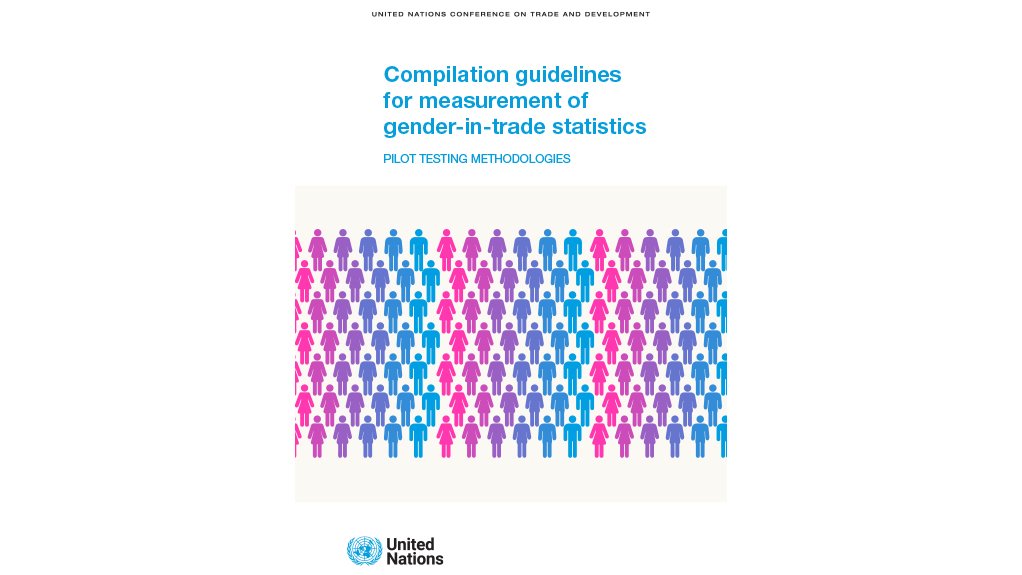- Compilation guidelines for measurement of gender-in-trade statistics1.83 MB
Gender gaps continue to exist in all spheres of life, including the economy and international trade. Yet, data about how women and men participate in international trade and how trade affects them is not collected and produced systematically.
When trade statistics do not account for gender dimensions, it is assumed that trade is a gender-neutral concept that affects all people in the same way. However, research shows that participation in international trade can be influenced by the existing gender biases and gender barriers.
Quality gender-in-trade statistics is the first step to identifying and addressing gender gaps in international trade and can inform future gender-sensitive trade policies to reduce gender inequality.
The Compilation Guidelines for Measurement of Gender-in-Trade Statistics aims to serve as reference material for trade policymakers and national statistical offices (NSOs) who wish to embark on developing gender-in-trade statistics for more inclusive trade policies.
It is an output of the joint UNCTAD, Economic Commission for Africa (ECA), and Economic Commission for Europe (ECE) project on “Data and statistics for more gender-responsive trade policies in Africa, the Caucasus, and Central Asia”.
The second chapter presents the conceptual framework for producing gender-in-trade statistics developed by UNCTAD.
The third chapter reviews potential statistical data sources.
The fourth chapter discusses different compilation methodologies.
The fifth and sixth chapters focus on indicators and relevant disaggregations suited for the analysis of gender perspectives in international trade, with data sources, calculations, and applications.
Finally, the last chapter includes case studies from countries that have already started compilation of gender-in-trade statistics.
Report by the United Nations Conference on Trade and Development
EMAIL THIS ARTICLE SAVE THIS ARTICLE ARTICLE ENQUIRY
To subscribe email subscriptions@creamermedia.co.za or click here
To advertise email advertising@creamermedia.co.za or click here











